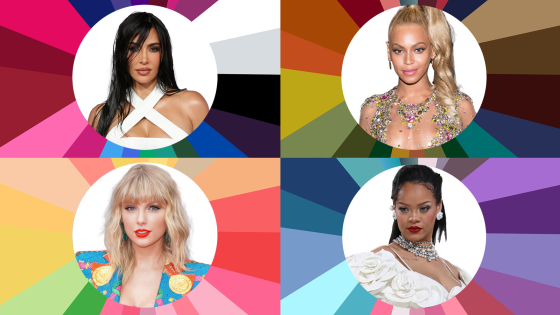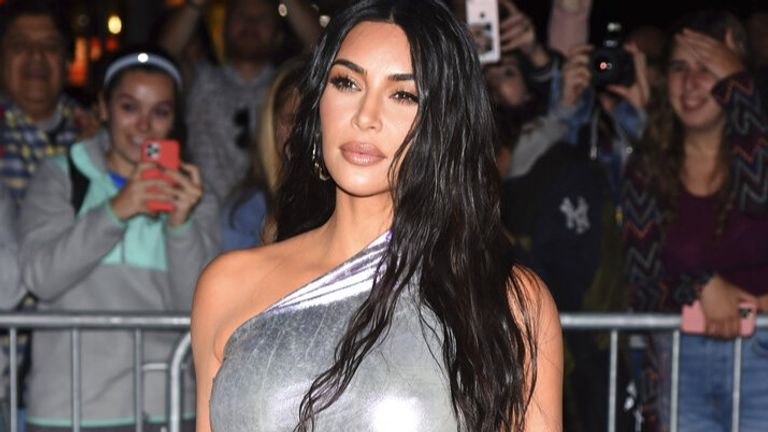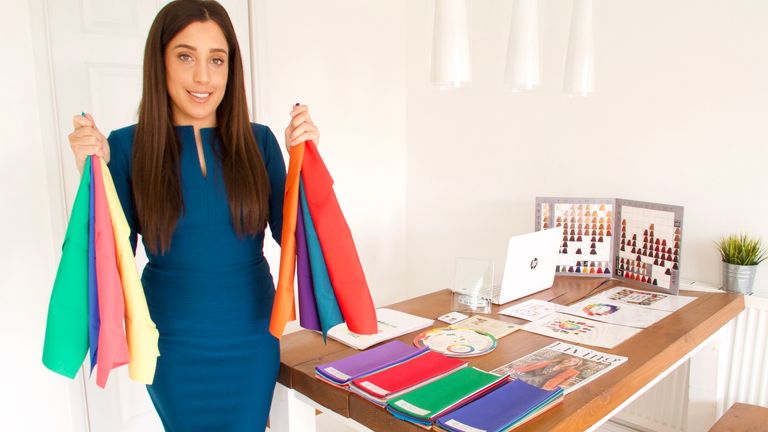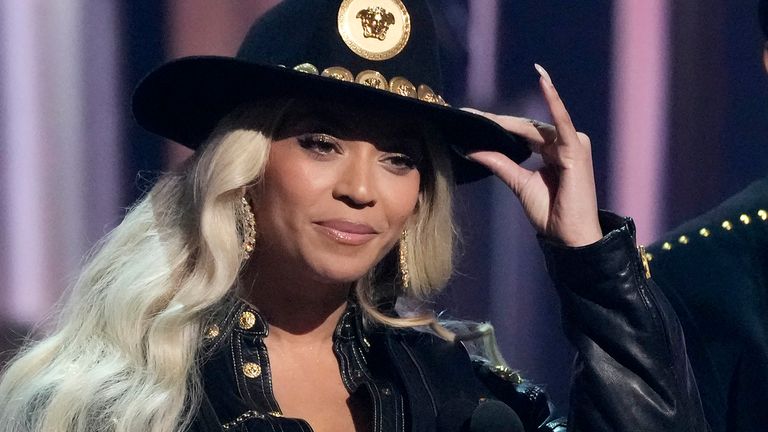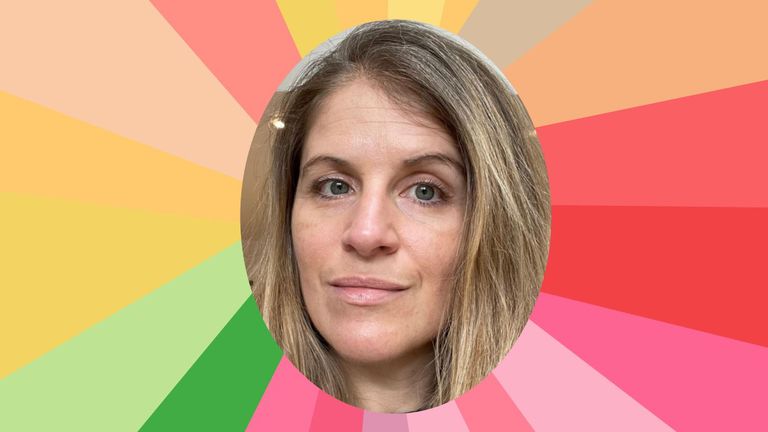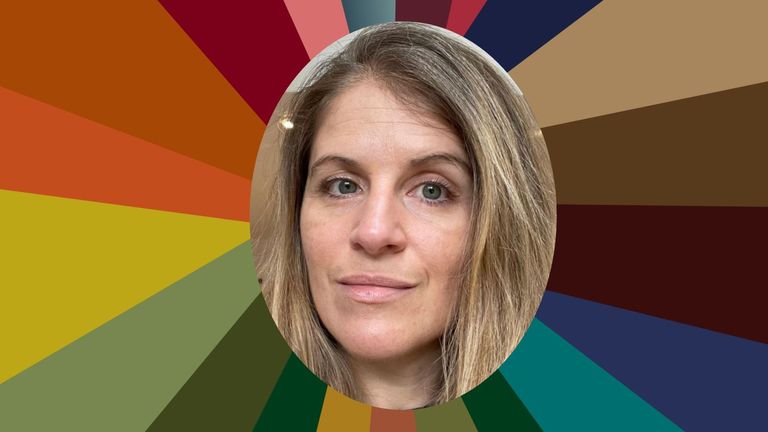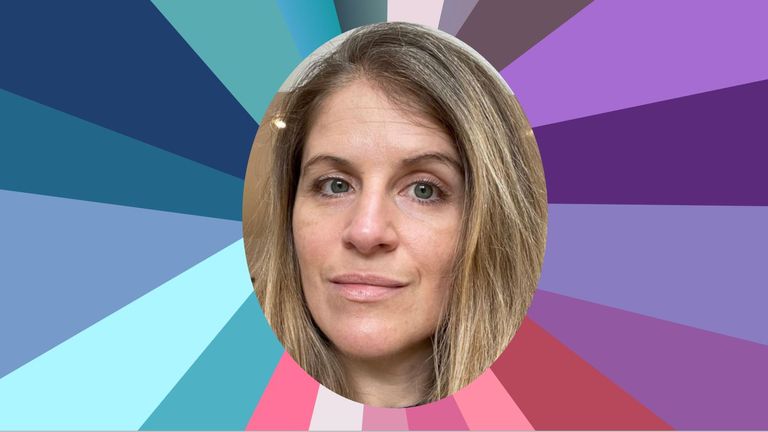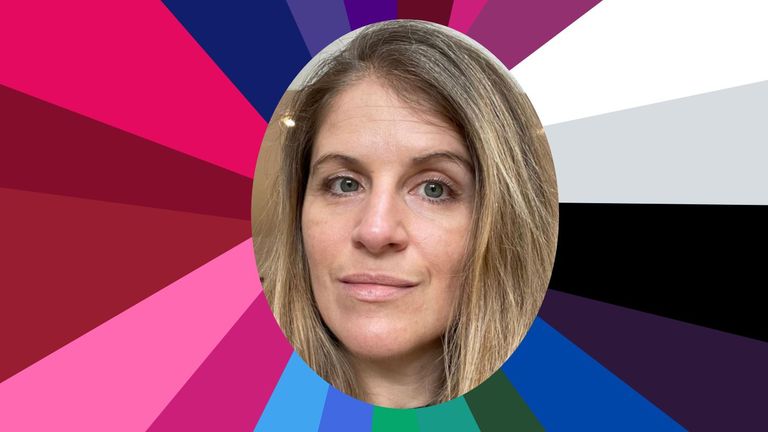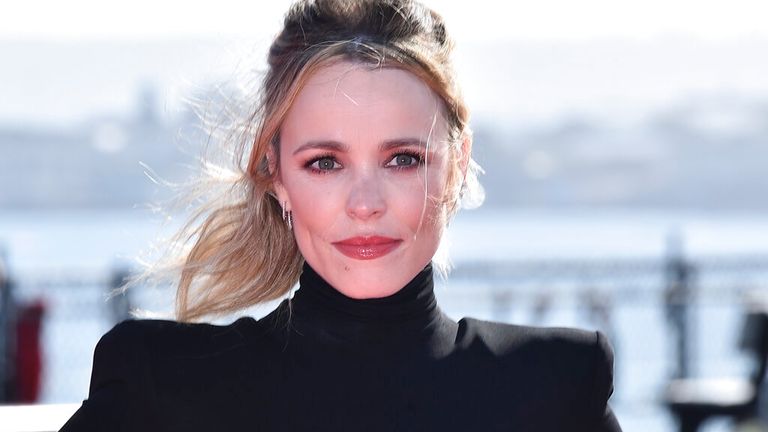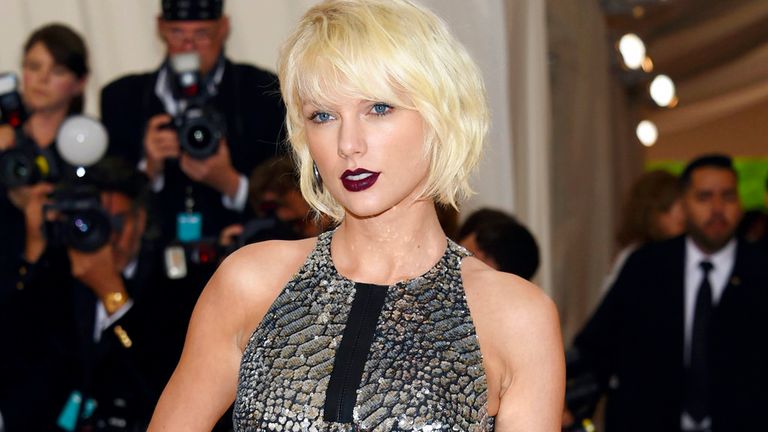Like all good (just about) millennials, my Instagram algorithm knows me better than anyone else.
Who and what do I spend my scroll time with? Dogs, mainly. Celebs in the ’90s, holiday cabins that are all floor-to-ceiling glass and breathtaking views and eyewatering prices. More dogs.
But over the past few months, something else has crept in: bare faces with swatches of different coloured fabric draped across their chests like rainbow napkins, their features brightening or dulling as the bibs are changed with a flourish by a stylist.
Pictures of celebrities with rainbow borders framing their faces fill my feed, sometimes with before and digitally altered “after” images side-by-side, showing how different our favourite stars might look with, say, a slightly warmer blonde tone to their hair, or in a silver dress rather than gold.
Welcome to the world of colour analysis – the science, the stylists say, behind the clothes that make you look good.
Like Avon parties, shoulder pads and blancmange, knowing your colour season was de rigueur in the 1980s, before the 1990s ushered in a more laidback approach, followed by instructions on What Not To Wear and How To Look Good Naked, focusing on body shape, in the noughties.
But colour styling is back.
In the past year or so, the trend has exploded on social media thanks to demand from millennials and Gen Zs who have discovered the power of knowing your season – search for #colouranalysis or #coloranalysis and you’ll find around 300,000 posts on Instagram alone, with similar numbers on TikTok.
Colour stylists say that not only is it a fun way to look at fashion, it’s also sustainable and a cost-saver – the idea being that if you know your colours, you’re not going to waste money on items that don’t optimise your looks.
What is colour styling?
The idea is that every single person’s features can be classified into a set of shades associated with spring, summer, autumn or winter – broken down further into 12 sub-seasons such as “true spring” or “bright winter” – and from this palette you can take guidance on the colours that suit you best, not just for clothing but also for make-up and hair.
Winters look great in jewel tones such as emerald green, or neon brights, while autumns suit the colours you associate with the season – mustard, cinnamon, dark moss green. Springs are warm, bright and clear, summers more soft and subtle. But your season is not just about how you look on the outside, and some might surprise you.
Watching the switching of colour drapes, or scrolling through the digital equivalent, can feel like a magic trick; a glow-up without a hint of highlighter or hair dye. Stylists assure this is #nofilter and there is no digital trickery going on here; the wrong colours will wash you out, but the right colour on the right person could well make your eye bags and wrinkles all but melt away.
Having watched this content from various colour stylists over the past few months, I have learned a lot about seasons, palettes and contrast, and undertone v overtone, warm v cool, clear v muted. I have learned that you might share the same eye, skin and natural hair colour as someone else and still be in a different season. That your colour season is not about skin colour or even tone.
And that, apparently, despite black being a go-to or a comfort blanket for many, it’s only – brace yourselves – those in the winter palette who truly suit it.
So now, in the interest of journalism, I’m finding out for myself.
Anyone who knows me will know my wardrobe is on the brighter side. I think I’m a spring. I hope I’m a spring. Am I a spring?
Have I been wearing the ‘wrong’ colours all my life?
I have my colours done by Francesca Cairns, a UK stylist of 10 years who says she has seen her Instagram following grow from about 10,000 to 500,000 across two accounts in the past 12 months or so, all thanks to colour analysis.
“It’s boomed, especially in the last year,” she says. “Gen Z want to learn about what works for them so they can create wardrobes that are sustainable. People are obsessed with it, it’s everywhere.”
Francesca works online, with clients internationally as well as in the UK, so needs photos. No make-up, natural lighting, standing in front of a window. I take about a million selfies before I find a couple that are vaguely passable and send them over, along with older pictures of myself over the years and some information: natural hair colour, (dark blonde/ mousey), eye colour (grey-green, a bit non-descript), how easily I tan (not bad) and my jewellery preference (silver; but, if I’m honest, this could well be a legacy from my frugal youth).
Rather than draping with material in person, she surrounds your face with colour digitally, the style equivalent of Tinder, swiping yes on the shades that work, relegating the ones that don’t, to see a pattern.
It’s mainly about undertone – not skin colour (overtone), she says. The tricky thing? You can’t necessarily see it.
“When I look at someone, I’m putting silver and gold next to them, or very warm versus cool colours,” Francesca says. “I’m seeing which looks best next to their features, which one’s not overpowering them.”
The aim of wearing your best colours is to see your face first, before everything else, she says. The right colour will enhance your features, bring out your eyes. “You don’t want a dress to wear you,” Francesca says. “When you walk into a room, you want people to see your face and your features before your outfit. You want it to all be in harmony rather than overpowering you.”
Her process usually takes 48 hours, but Francesca has my results over to me the next day.
I am, it seems, not a spring.
According to Francesca’s workings, I am a soft summer, just like Rihanna, Sarah Jessica Parker and Rachel McAdams. I have a neutral undertone which leans cool, she tells me, with muted and soft colouring, subtle rather than high contrast. Baby blue, pine green, lavender, sage and taupe are on the list of recommended clothing colours, while ash brown and cool blonde are suggested for my hair (not too far off, but my highlights are probably on the warmer side).
I do own a fair bit of light blue denim, which is good, but I’m looking at all the bright greens, oranges and pinks in my wardrobe. This isn’t about my favourites, though, it’s about the ones that harmonise with my features best.
“It’s colour science,” Francesca says. “If someone’s got a warm undertone, nine out of 10 times they’re probably going to be in the spring or autumn seasons because they look better with a lot of warm tones most of the time. But if you’re neutral, you can border both the seasons.” As I’m neutral, she says some of the spring colours would work – but winter is too high contrast and cool-toned.
Someone with a high contrast – pale skin, dark hair, bright eyes, for example – can pull off high contrast colours such as cobalt blue and fuchsia pink. “But they might overpower someone who’s got softer features,” she says.
Celebs in – and out – of season
It’s important to note that colour analysts don’t always agree. Some put Margot Robbie as a summer, for example, while others, including Francesca, say she’s a spring. Some say you have to do the analysis in person to be certain, while others say photos taken in the right conditions are enough.
I take an online colour quiz for a second opinion and it puts me as a spring, but this is without photographic evidence; I can’t help but think the result is probably something to do with the questions being mainly about the colours I’m drawn to and how I see myself.
Francesca is confident in my summer analysis, but says I can lean into the spring palette. And this isn’t about throwing away an entire wardrobe, but potentially making tweaks.
“Colour analysis isn’t about restriction,” she says. “I’m an autumn. People ask me all the time if I still wear black? Yes, because 90% of my wardrobe before I did this was black. I’ll always wear black, but I’ll make it work for me better by wearing my make-up in my colours, or accessories round my face, wear black lower down or with a lower neckline.
“If you love a colour that’s not in your season it doesn’t mean you can’t wear it, it just means that you wear your colours with it or make it work for you in a different way. And when I post celebrities against different [background] colours, it can be quite subjective.”
Because being groomed and beautiful means stars often look good against all sorts of different shades.
“People might prefer them in a different [colour to their season] and that’s their opinion. But when it comes down to the trained eye and you know what you’re looking for, you see straight away why one palette works better than another.”
More from Sky News:
Incredible close-up photos of bees go on display
Britney Spears says paramedics turned up ‘illegally’ after twisting her ankle
Kim Kardashian (winter), Kate Middleton (summer) and Hailey Bieber (autumn) are celebrities you will usually find wearing their colour palettes, she says.
But wearing colours out of your season can pack a punch – think Taylor Swift‘s platinum white hair and dark lipstick look during the height of the Kim and Kanye feud in 2016, or Beyonce‘s current platinum look for the release of Cowboy Carter. Swift is a spring, apparently, while Beyonce is autumn.
“But I’m always training my eye, even now after years,” says Francesca. “You’ll always find that someone’s colours will always surprise you. And there’s no rule book – it’s all about having fun.”
Source Agencies

